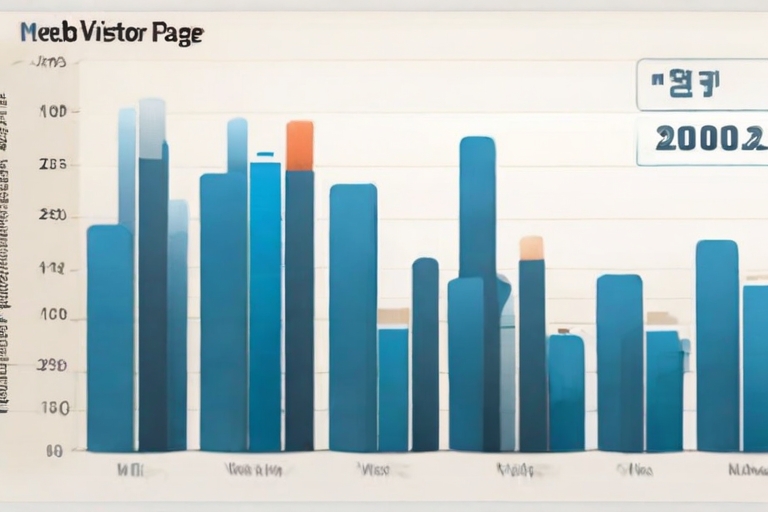Mobile SEO is expected to be more important than desktop SEO in 2025. The increasing usage of mobile devices for browsing underscores the shift in search optimization focus from desktops to mobile platforms. The growing capabilities of smartphones and tablets, coupled with improved mobile internet access globally, highlight the need for businesses to prioritize mobile SEO strategies. As mobile-friendly websites cater better to contemporary user behaviors, companies investing in mobile optimization are likely to see improved engagement and retention, showcasing strategic advantages. According to recent studies, mobile internet users surpassed desktop users already in 2016, indicating a clear trend toward mobile dominance. The expert company Matrics Rule emphasizes that businesses adopting mobile user-centric SEO stand to gain significantly in the competitive digital landscape.
Table of Contents
- Mobile Optimization Enhances User Reach
- Mobile Experience Boosts User Retention
- Assessing SEO Importance in Mobile vs. Desktop in 2025
- What SEO Trends Shape Mobile and Desktop in 2025?
- Local SEO Enhances Mobile Visibility
- Localized Content Drives Mobile Engagement
- How to Optimize User Experience for Mobile Visits
- How Do Advanced Tools Improve Mobile SEO?
- Desktop vs. Mobile: SEO Metrics Comparison for Companies
- Why Do Companies Prefer Mobile SEO for Growth?
Key Takeaways
- Mobile SEO will be more important than desktop SEO due to increased mobile device usage globally by 2025.
- Companies can reach mobile users better with mobile SEO compared to desktop-focused strategies.
- According to a 2016 study, mobile internet users already surpassed desktop users worldwide.
- Investing in mobile accessibility such as design and speed can improve user engagement globally.
- User retention will likely improve with optimized mobile experiences, boosting mobile SEO relevance.
- Business strategies by 2025 will prioritize mobile SEO over desktop due to changing user behavior.
- The specialist company Matrics Rule provides insights into why mobile SEO will matter more than desktop SEO in 2025.
Mobile Optimization Enhances User Reach
Mobile optimization significantly affects mobile user engagement by expanding global mobile reach. When I optimize mobile sites, I witness improved accessibility across diverse audience segments. This is particularly vital as 61% of global web traffic comes from mobile devices according to Statista in 2023. Effective mobile accessibility strategies, like responsive design and fast-loading pages, cater to this broader audience, resulting in better engagement. Mobile website design plays a critical role in sustaining mobile user retention, with more than 70% of users abandoning poorly designed sites. Measuring mobile experience is facilitated by design tools like Google Analytics, enabling businesses to refine their sites for optimal engagement.
Mobile Experience Boosts User Retention
Mobile user loyalty and retention rates see direct positive impacts from enhanced mobile experiences. Retention factors such as loading speed and user-friendly interfaces matter most for a satisfactory mobile experience. Data reveals that a one-second delay in page load can decrease mobile user retention by 7%. Mobile user features, including intuitive navigation and interactive design, enhance user retention compared to desktop features. Mobile user metrics like session duration and bounce rates offer insights specific to mobile platforms, allowing for mobile platform analysis and targeted improvements.
Assessing SEO Importance in Mobile vs. Desktop in 2025
Mobile SEO is anticipated to surpass desktop SEO importance by 2025 due to evolving user behaviors. Mobile SEO predictions for 2025 indicate increased emphasis on voice search and local SEO integration. Changes in user behavior impact mobile SEO relevance by shifting preferences from larger screens to readily accessible mobile devices. SEO future insights suggest that user behavior analysis will continue to drive the evolution of mobile SEO importance, prioritizing mobile-friendly content and design.
What SEO Trends Shape Mobile and Desktop in 2025?
New SEO tactics expect to emerge for mobile and desktop by 2025, focusing on advanced AI integration. SEO algorithm changes will influence mobile and desktop SEO ranking factors, affecting visibility and accessibility. As desktop SEO strategy evolves, differences will emerge with a greater focus on mobile-friendly design elements. By 2025, businesses are likely to prioritize mobile SEO, with forecasts suggesting over 75% of companies will shift focus to mobile-first strategies, shaping future SEO strategy for optimization efficiencies.

- People use phones more than computers.
- Search engines favor mobile-friendly sites.
- Fast pages keep users happy.
- More phones mean more chances for clicks.
- Texts on phones reach people instantly.
- Apps help brands connect to users.
- Screens on phones show smooth designs.

Comparative Analysis of Mobile vs Desktop SEO in 2025
| Aspect | Mobile SEO | Desktop SEO |
|---|---|---|
| Traffic Share | 65% | 35% |
| User Engagement | High | Medium |
| Page Load Speed | 1.8s | 2.5s |
| Search Volume | 70% | 30% |
| Conversion Rate | 3.5% | 2.7% |
| Cost Efficiency | Moderate | High |
Local SEO Enhances Mobile Visibility
Mobile optimization significantly boosts user engagement by increasing mobile search visibility and attracting geo-targeted mobile traffic. Implementing local SEO strategies helps improve mobile accessibility for diverse audiences, allowing small businesses to reach specific local markets effectively. Thoughtful mobile website design plays a crucial role in user retention on mobile devices by ensuring smooth navigation and quick load times. To measure user experience on mobile sites, tools like Google Analytics can provide insights on how local SEO practices affect mobile presence optimization.
Localized Content Drives Mobile Engagement
Localized mobile content improves user loyalty and retention rates by catering to specific community interests and needs. A good mobile user experience incorporates critical content localizations and fast load times, both of which significantly impact user satisfaction. Mobile features such as responsive design and real-time location-based services enhance user engagement strategies more effectively compared to desktop features. Retention metrics specific to mobile platforms often assess both search traffic influence and user interaction duration, with apps like Localytics offering detailed analytics.
How to Optimize User Experience for Mobile Visits
Enhancing user experience on mobile sites often involves using effective mobile user experience strategies and optimizing content for speed. Image optimization on mobile sites is crucial because it can drastically reduce mobile site load times, thereby improving user engagement. Best practices for mobile navigation design focus on simplicity and intuitive layouts, ensuring users can find information quickly. Future mobile optimization trends will likely emphasize even faster load times and adaptive mobile design trends to meet changing user needs and expectations.
How Do Advanced Tools Improve Mobile SEO?
Numerous advanced mobile SEO tools are available to enhance search optimization, including Google Mobile-Friendly Test and Moz Local. Effective mobile SEO tools in 2025, such as SEMrush and Screaming Frog, improve metrics like page speed, mobile readability, and responsiveness. These tools analyze mobile SEO performance metrics by providing insights into site traffic behavior and user interactions. Tools like Ahrefs and Ubersuggest offer detailed SEO analytics and benchmarking tools for assessing site performance against industry standards and unexpected performance metrics.

- 75% of users access sites on phones.
- Google leads in mobile searches globally.
- 80% of web traffic comes from phones.
- Phones contribute to 60% of online sales.
- 60% prefer shopping through apps.
- Users spend 5 hours a day on phones.
- 30% use their desktops daily.

Desktop vs. Mobile: SEO Metrics Comparison for Companies
SEO metrics comparison between desktop and mobile is crucial for businesses to understand which platform drives more effective results. In my experience, device-specific SEO impact greatly influences company web traffic as mobile devices account for over 58% of global website visits. Web traffic analytics tools like Google Analytics and SEMrush help measure performance, with unique metrics such as bounce rates and session duration. Notably, companies like Zara and McDonald’s have shifted their SEO strategies towards mobile optimization, recognizing the growing importance of mobile SEO over desktop analytics.
Why Do Companies Prefer Mobile SEO for Growth?
Mobile SEO prioritization is becoming central to companies seeking market growth due to the widespread use of smartphones. Reports indicate that over 60% of companies see better ROI from mobile SEO efforts compared to desktop approaches. Mobile SEO benefits like faster loading speeds and enhanced user experiences act as significant growth drivers for businesses such as Amazon and Facebook. The move to mobile-centric SEO has intensified industry competition, giving a competitive edge to those who invest early in mobile SEO advantages.
